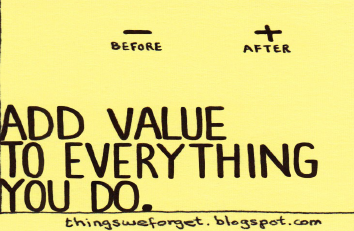
BY: ALISON
Most people don’t realize that the most painful part of living with a serious health issue is losing your identity.
When every day things – that you’ve never given any thought – become difficult and you’re no longer able to do the things that you enjoy, you constantly feel self-conscious, misunderstood, and pressure to be who you once were, especially around people that knew you before your injury/illness.
It feels like you’ll never stop grieving the loss of your old self. To cope with this and to pre-emptively explain themselves, I’ve noticed that a lot of people with brain injuries are very quick to share a detailed recount of their medical history, even with people they’ve just met. This makes me sad to hear, because it means that they have likely turned their injury into their identity. As a result, the injury becomes the only thing that their peers see in them, too.
People from this community also tend to talk more about their past lives than their current ones. For example, they often tell you about the things they used to do; i.e. their past careers, the sports they played, or their hobbies, talents, and skills from before their acquired brain injury. This may be because, on some level, they worry that the current version of themselves is lesser than their original version. Although this line of thinking is understandable considering the constant reminders they have of their new limitations, it is completely untrue. Here’s how I changed the way that I define myself and how I measure my self-worth now.
After a debilitating brain injury, I wasn’t able to tolerate any form of stimulation which meant that I wasn’t able to do anything. I couldn’t even lift my head off the bed to take a sip of water without excruciating pain and exhaustion. At my lowest point, I was absolutely useless to the world and had become a huge burden to my caregiver. But luckily, I have always believed that every life serves a purpose and adds value to the world. So, I refused to accept the notion that I had become worthless. First, I allowed myself to mourn the loss of my old life and then I accepted the reality that things would never be the same. I never gave up hope that things would improve but even if they didn’t, I resolved to do the best with what I had and live my best life. The next step was to figure out who the new me was.
I asked myself, who am I if I can not work, socialize, or volunteer anymore? Can I still tell people that I love to travel if I may never travel again? Am I still considered a TV and movie lover if I no longer watch them? Am I still a foodie if I can’t cook or eat in restaurants? That’s when I realized that I had been using the wrong definition of “self” all along, because I had based my identity on things that I “do”.
Who we are is not simply a sum of our jobs, likes and dislikes, and strengths and weaknesses. Even our thoughts don’t make us who we are; it’s what we do with those thoughts that does. Eckhart Tolle coined my favourite philosophical definition of the “self”. Paraphrasing in my own words: The real you is the part of your mind that’s aware of your thoughts.
Too often, we base our self-esteem on measurable things such as salaries, belongings (e.g. cars, jewellery, wardrobe), size (e.g. waist, chest, bicep, etc.), fitness abilities, and achievements (e.g. professional and conventional life stages). I decided that I would define myself and measure my self-worth based on the choices that I make. Every time you try again, exercise patience with yourself, focus on what you have as opposed to what you don’t (or how far you’ve come as opposed to how far you’ve left to go), show appreciation to people that have helped you, or do something that helps your health (e.g. drink a glass of water or stretch), you’re building character and proving your value. Internal decisions such as these are significant victories, especially in the face of struggle.
So, who am I? Before my brain injury, I would have answered that question with my profession, travels, and plans for the upcoming weekend. Now, I will tell you that I am grateful and funny, that I’m learning, I persevere, love dogs, and care about others. The more important question is, who are you?
‘Mind Yourself with Alison’ is a collection of self-help tips, research, and personal experiences dedicated to helping people thrive after brain injury (or other health problems). Check out Alison’s other BIST Blog articles Women and Brain Injury: What you need to know and How to be a Good Friend to a Survivor.






